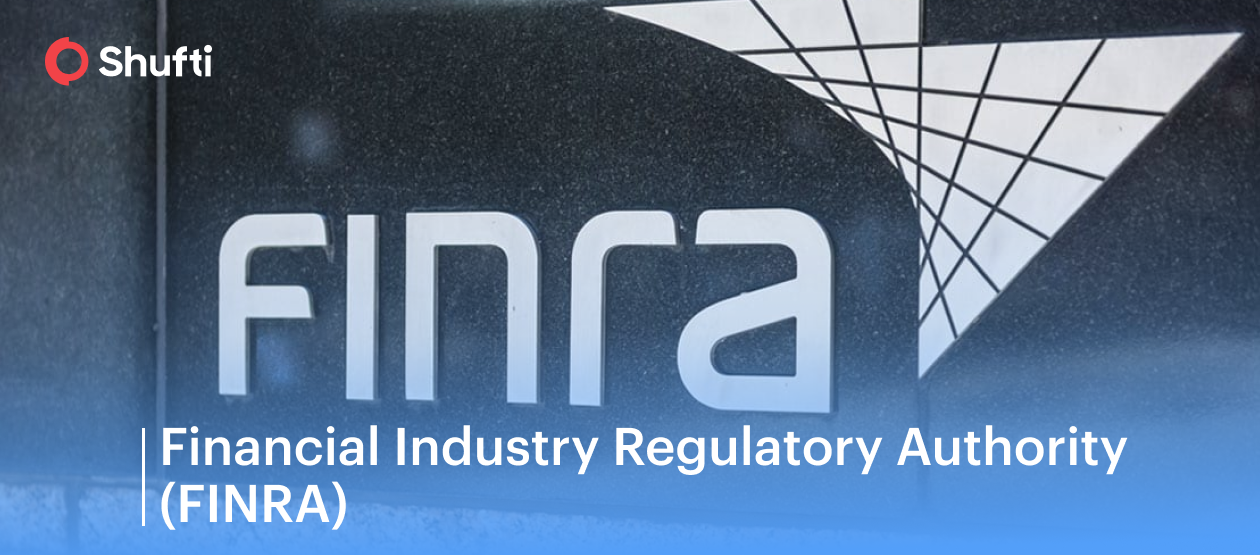Financial Industry Regulatory Authority (FINRA)

Millions of individuals are putting their savings in stocks, bonds, mutual funds, or retirement accounts every day. In the background of every transaction is an expectation that the system is equitable, transparent, and guarded against misuse. But who makes sure of that?
That is where the Financial Industry Regulatory Authority (FINRA) comes in. Being one of the most crucial regulators of the U.S. financial system, FINRA operates in the background, ensuring that brokers comply with the rules, exposing fraud, and arbitrating the investors off risks that may destroy trust in the markets.
What is FINRA?
Financial Industry Regulatory Authority (FINRA) is a self-regulatory agency (SRO) that regulates the operation of U.S. brokerage firms and registered representatives. It is a nonprofit regulator, unlike a government agency, and is very closely overseen by the U.S. Securities and Exchange Commission (SEC).
Finra was established in 2007 following a merger between the regulatory roles of the New York Stock Exchange (NYSE) and the National Association of Securities Dealers (NASD). It is currently one of the largest independent securities regulators in the world, currently regulating over 4,250 brokerage firms and over 630,000 licensed securities professionals.
Why FINRA Exists and Why It Matters
The financial sector may not be an easy place due to its complex infrastructure, and unfortunately, it may also be a nest of fraud, manipulation, and dishonesty. The lack of regulation would kill investor confidence, negatively affecting the individuals and the economy at large.
This is why FINRA matters:
- Holds brokers to ethical and transparent practice.
- Identifies and disciplines fraud, insider trading, and manipulation.
- Obligates companies to implement rigorous anti-money laundering (AML) initiatives.
- Offers services such as BrokerCheck, where a person can learn more about a broker by investigating their background prior to making investments.
At the core, FINRA is the body that is designed to even the playing field and ensure that small investors are just as safe as the big ones.
What does FINRA regulate?
The functions of FINRA can be summarized as a couple of key areas:
1. Licensing and Qualifications
To be able to work with investors, FINRA also expects brokers to pass exams like the Series 7 to demonstrate competence. It also requires continued education to ensure that professionals are abreast of rules, products, and ethical standards.
2. Market Oversight
In order to safeguard market integrity, FINRA processes and analyzes hundreds of billions of market events, quotes, orders, and trades every day.. This supervision assists in the detection of insider trading, suspicious trends, and other manipulations before they damage the investors.
3. Anti-Money Laundering (AML) Compliance
According to the rules of FINRA, brokerage firms are required to have solid AML programs. Using the Customer Due Diligence (CDD) Rule, companies must authenticate the clients, the reason they are opening accounts, and review the transactions to identify abnormal and suspicious activities.
4. Investor Education and Protection
FINRA is also concerned with direct investor protection. Its BrokerCheck service provides the general public with a level of transparency in the background of a broker, and its complaint procedure investigates misconduct and provides a fair resolution of disputes.
What is FINRA in Insurance?
The Financial Industry Regulatory Authority (FINRA) is not an insurance regulator in the conventional sense. Rather, it controls brokers and securities firms in America. Nevertheless, FINRA does enter the scene of insurance when there are insurance products attached to investments.
There are numerous hybrid financial products that comprise insurance features and investment components. Through this, there is oversight by FINRA of where there is overlap between securities and insurance.
FINRA AML/CTF Fines
The enforcement imposed by FINRA sends a powerful message that non-compliance is costly. FINRA has imposed penalties due to non-compliance; in 2016 alone $ a total of $176 million in fines were imposed. In 2017 and 2018, a total of $65 million and $68 million were imposed as a result of non-compliance. FINRA (and SEC/CFTC) fined Interactive Brokers $15 million in 2020 (and an additional $23 million) due to not having an appropriate AML program.
These examples indicate that companies that disregard requirements on compliance not only expose themselves to reputational damage, but they also end up paying huge fines.
Final Thoughts
Financial Industry Regulatory Authority (FINRA) is not a rule enforcer but rather the foundation of trust in U.S. financial markets. FINRA has ensured that markets are fair, transparent, and resilient by holding brokers to account, overseeing risks, and protecting investors.
As blockchain, AI, and digital identity authentication continue to transform the financial landscape in the years to come, FINRA’s guidelines may evolve, reflecting the changing threat landscape and new technologies.

 Explore Now
Explore Now






